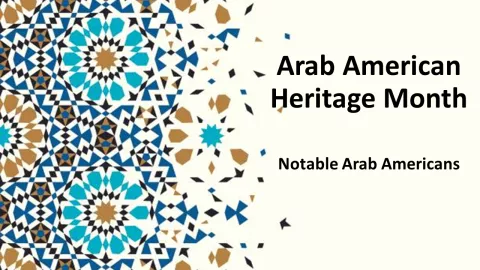Arab American Heritage Month 2025
The achievements of Arab Americans are celebrated during the National Arab American Heritage Month (NAAHM) in April. Arab America and the Arab America Foundation launched the National Arab American Heritage Month initiative in 2017, with just a handful of states recognizing the initiative. In 2021, the President of the United States, Joe Biden, recognized the month of April as National Arab American Heritage Month with a special commemorative letter. In 2022, Congress, the U.S. Department of State, and 45 state governors issued proclamations commemorating the initiative. Additionally, the following states have passed permanent legislation designating the month of April as NAAHM: Illinois; Oregon, Virginia, Indiana (Senate), and California.
During this time, we celebrate Arab Americans throughout the past and present, and recognize their invaluable contributions to our country. It also serves as a time to combat Anti-Arab bigotry and to challenge stereotypes and prejudices.
- Zoom Backgrounds for Arab American Heritage Month can be downloaded here: UCSF
- Additional AAHM info and events at the UCSF Multicultural Resource Center






